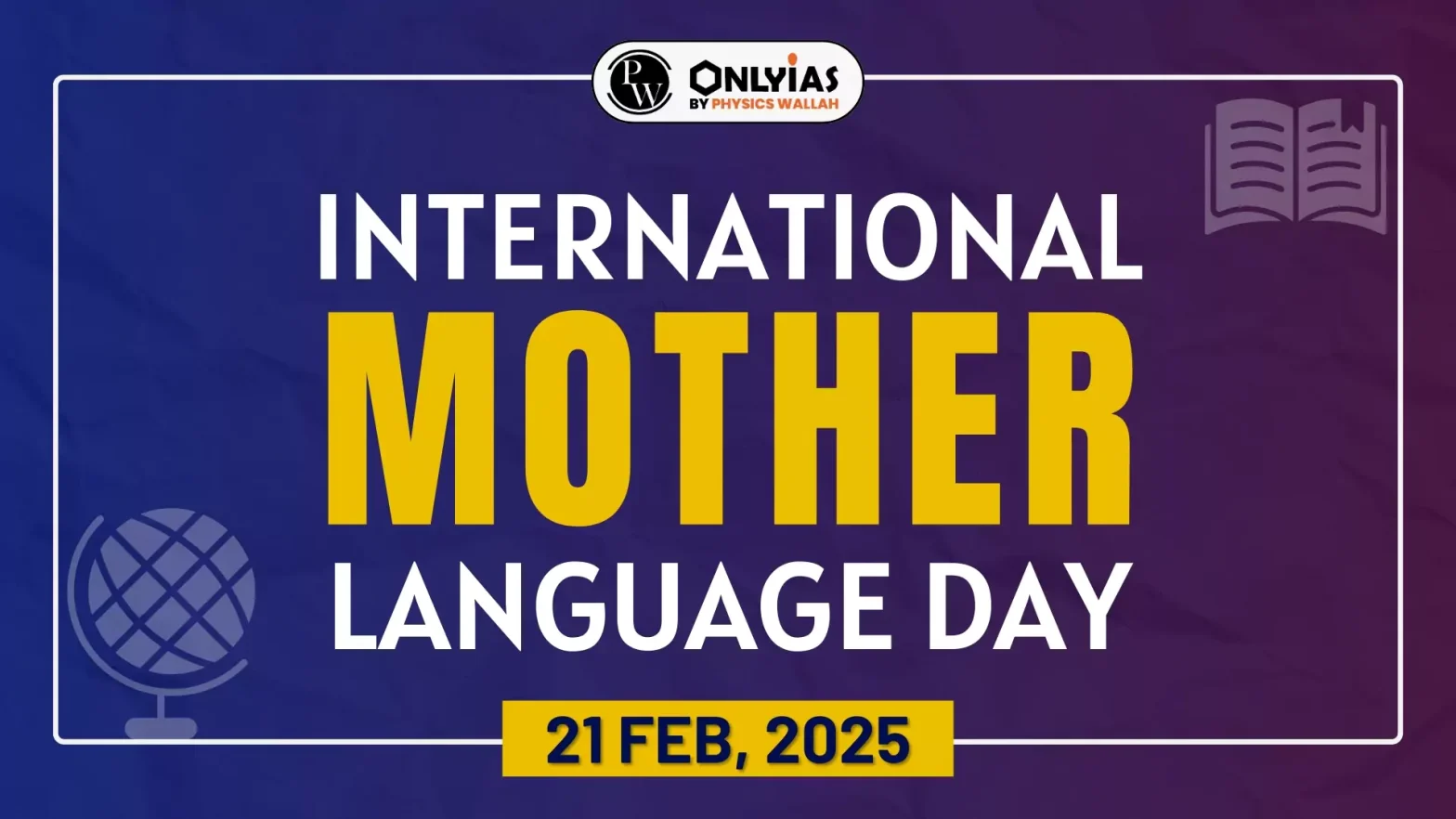International Mother Language Day 2025 will be observed on February 21, 2025. Learn more about International Mother Language Day here.

International Mother Language Day is observed annually on February 21 to promote the importance of linguistic and cultural diversity. The day was established by UNESCO in 1999 to commemorate the language movement that took place in Bangladesh in 1952. Students lost their lives advocating for the recognition of their mother language, Bangla. Since then, this day has been celebrated worldwide to emphasize multilingualism, linguistic rights, and cultural preservation.
International Mother Language Day 2025 is celebrated to promote the importance of preserving and promoting linguistic diversity. With many languages facing extinction, global efforts must focus on reviving indigenous languages, encouraging multilingual education, and safeguarding cultural heritage. Here’s an overview of International Mother Language Day 2025:
| International Mother Language Day 2025 Overview | |
| Aspect | Details |
| Date | February 21, 2025 |
| Established By | UNESCO (United Nations Educational, Scientific and Cultural Organization) |
| First Observed | February 21, 2000 |
| Theme for 2025 | “Silver Jubilee Celebration of International Mother Language Day.” |
| Objective | Promote linguistic diversity, multilingual education, and the preservation of endangered languages |
| Significance | Raises awareness about mother languages, strengthens linguistic rights, and supports cultural identity |
The theme for International Mother Language Day 2025 is “Silver Jubilee Celebration of International Mother Language Day.” This year marks the 25th anniversary of the UNESCO-declared observance, reinforcing the significance of linguistic diversity, multilingual education, and the preservation of indigenous languages.
The theme highlights the progress made in language preservation over the years and encourages global efforts to further protect endangered languages and promote cultural heritage. It serves as a reminder of the importance of mother tongues in education, social integration, and identity formation, ensuring their sustainability for future generations.
International Mother Language Day is a global observance that promotes language diversity, linguistic rights, and the preservation of native languages. The day commemorates the sacrifices made during the 1952 Language Movement in Bangladesh, which led to the recognition of Bangla as an official language.
The United Nations and UNESCO advocate for multilingual education and language preservation, ensuring that linguistic minorities are protected and that languages facing extinction are revitalized.
With thousands of languages facing extinction, initiatives like International Mother Language Day are crucial in preserving global linguistic heritage. Mother languages play a vital role in:
India is known as “A Land of Linguistic Diversity.” It is one of the most linguistically diverse countries, with 22 official languages recognized by the Indian Constitution under the Eighth Schedule. The country has over 1,600 spoken languages and dialects, making it a hub of linguistic heritage. Here are the official languages in India:
| Languages in India | ||
| Language Group | Examples | Regions Spoken |
| Indo-Aryan | Hindi, Bengali, Marathi, Gujarati, Punjabi | North, West, and Central India |
| Dravidian | Tamil, Telugu, Kannada, Malayalam | South India |
| Tibeto-Burman | Manipuri, Bodo, Mizo, Naga languages | Northeast India |
| Austroasiatic | Santali, Mundari, Khasi | Eastern and Central India |
India’s linguistic diversity reflects its rich cultural history and need for language preservation.
Countries and organizations observe this day by:
Governments worldwide collaborate with UNESCO to implement language policies that ensure equal access to education and linguistic freedom.
Ready to boost your UPSC 2025 preparation? Join PW’s UPSC online courses today!
The International Mother Language Day 2025 theme is "Silver Jubilee Celebration of International Mother Language Day."
The day is celebrated to raise awareness about linguistic diversity, promote multilingual education, and support language preservation efforts worldwide.
It was proclaimed by UNESCO in 1999 to honor the 1952 Language Movement in Bangladesh, where students fought for the recognition of Bangla as an official language.
India has over 1,600 spoken languages, with 22 official languages recognized by the Indian Constitution.
Individuals can learn, document, and promote their mother tongue, support language education initiatives, and participate in cultural heritage programs.
<div class="new-fform">
</div>